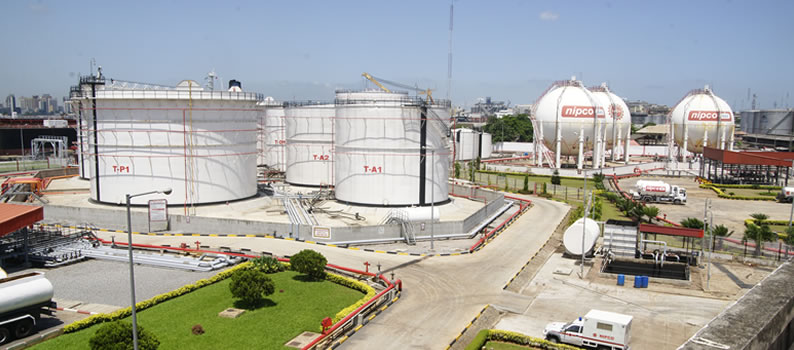THE NATION TUESDAY EDITORIALS, The NIPCO EXAMPLE
Vigorously pursuing the gas alternative is perhaps the surest way to diversify Nigeria’s economy
It appears to us more like a rare admixture of tenacity and belief than economics and the pursuit of profits. This is the laudable story of NIPCO Plc., an indigenous oil and gas marketing firm.
Last week, the management of NIPCO paid a courtesy call on former President Olusegun Obasanjo, at his Hilltop residence in Abeokuta, Ogun State. It was revealed at that occasion that the former president had granted licences to three firms to develop Nigeria’s abundant natural gas for automobile use and reduce dependence on imported petroleum products.
As it has turned out, only NIPCO put the gas conversion license to effect. It had partnered with the Nigerian Gas Company to form Green Gas Limited and has continued to invest in the project in the last decade.
According to the managing director of the company, Mr. Venkataraman Venkatapathy, Green Gas Limited has developed nine operational Compressed Natural Gas (CNG) stations while eight others are in various stages of construction.
Edo State being the pilot test ground of the CNG for vehicles project, it is reported that Benin City currently has over 4,000 vehicles running on CNG. This is said to translate to replacing 20 million litres of petrol between 2012 and 2015 and a foreign exchange savings of about $9 million.
The superiority of gas over liquid fuel is not in doubt. Apart from the fact that it is clean and more environmentally friendly, Nigeria has about 186 trillion cubic feet of natural gas reserve which has remained largely untapped.
Ventkatapathy put Nigeria’s gas conundrum into perspective thus: “To replace 20 percent of current petrol consumption of Nigeria, natural gas required is less than five percent of the total domestic gas consumed currently and less than one percent of the current gas production. Foreign exchange saved will be close to $2 billion.”
The NIPCO example is particularly remarkable because gas gathering and conversion to various uses is very capital intensive and requires high technological know-how, especially at the outset. This explains why many investors, including international oil companies, would rather flare gas into the atmosphere, take petrol and other by-products and pay token penalties as stipulated by the Federal Government.
NIPCO Plc has in the last 10 years developed what is perhaps the largest CNG station in Africa at Ibafo, Ogun State, and it has also tapped into the network of gas pipelines in Benin City to commence its pilot scheme.
We urge that government must do all that is necessary to encourage Nipco as a pioneer foraging in a difficult terrain its contemporaries have shunned. Now more than ever, a set of incentives should be rolled out for firms like Nipco that have bucked the trend to invest in difficult and not too profitable areas of the economy.
That gas is a key part of earth’s energy equation going forward is not debatable. The Federal Government must therefore get serious and drive its own gas policy by drawing timelines and setting achievable targets for major players in the energy sector. For instance, if government licensed three firms 10 years ago to convert natural gas and two reneged, there ought to be sanctions; many more licenses should have been granted to well-screened firms.
As crude oil price falls, government must resolve to dive into the rapid development of Nigeria’s astounding gas reserve as bases for the new economy. Apart from gas vehicles and gas-powered plants for electricity generation, domestic gas use is still insignificant. Government could initiate a policy that requires that every new housing estate in Nigeria must be piped for gas use.
While we ask government to consider gas as a viable alternative for diversifying the economy, we again commend NIPCO Plc for taking the bull by the horns and for raising the ideals of business beyond the profit motives alone.




